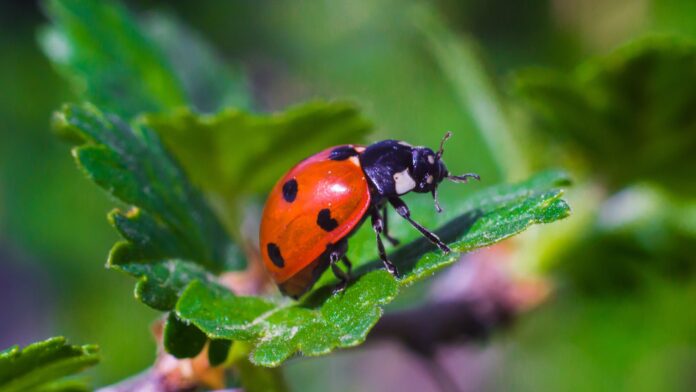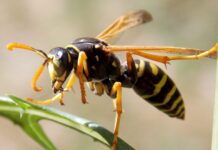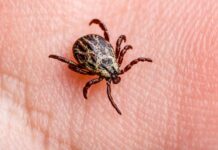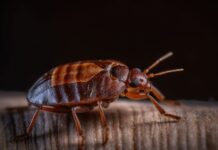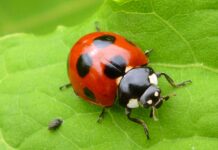Beneficial insects play a crucial role in maintaining a healthy garden by controlling pest populations. In Cleveland, gardeners can take advantage of these natural allies to reduce the need for chemical pesticides. Common beneficial bugs include ladybugs, lacewings, parasitic wasps, and ground beetles, each contributing uniquely to pest control. By creating a welcoming environment with diverse plantings and minimal pesticide use, gardeners can attract and sustain beneficial insect populations.
Detailed Discussion:
Introduction
Gardening in Cleveland comes with its own set of challenges, particularly when it comes to managing pests. While chemical pesticides can be effective, they often bring undesirable side effects, such as harming beneficial insects, polluting waterways, and damaging plant health over time. Fortunately, nature provides a solution in the form of beneficial insects that prey on common garden pests. This method of pest control is not only environmentally friendly but also supports a balanced ecosystem.
Common Beneficial Insects
- Ladybugs (Coccinellidae)
- Description: Ladybugs are perhaps the most well-known beneficial insect. They are small, usually red with black spots, and have an oval shape.
- Pest Control: Both adult ladybugs and their larvae feed on aphids, mites, and scale insects. A single ladybug can consume up to 50 aphids per day.
- Attracting Ladybugs: Planting flowers like marigolds, dill, fennel, and cilantro can attract ladybugs to your garden. Providing a water source, like a shallow dish with stones, helps too.
- Lacewings (Chrysopidae)
- Description: Lacewings have delicate, translucent wings and are typically green or brown.
- Pest Control: Lacewing larvae, known as “aphid lions,” are voracious predators of aphids, mealybugs, and caterpillars.
- Attracting Lacewings: Planting yarrow, dill, and sunflowers can attract adult lacewings, which lay eggs that hatch into larvae ready to feed on pests.
- Parasitic Wasps (Ichneumonidae, Braconidae, etc.)
- Description: These wasps are generally small and non-aggressive to humans. They have a slender body with long antennae.
- Pest Control: Parasitic wasps lay their eggs inside or on pest insects like caterpillars, aphids, and whiteflies. The developing larvae consume the host, effectively reducing pest populations.
- Attracting Parasitic Wasps: Plants that produce small flowers, such as sweet alyssum, dill, and parsley, can attract these beneficial wasps.
- Ground Beetles (Carabidae)
- Description: Ground beetles are typically dark-colored, fast-moving, and often found on the ground.
- Pest Control: These beetles prey on a variety of soil-dwelling pests, including slugs, caterpillars, and root maggots.
- Attracting Ground Beetles: Providing ground cover like mulch or stones and planting perennials can create a habitat that supports ground beetle populations.
Creating a Beneficial Insect-Friendly Garden
To maximize the presence of beneficial insects, gardeners should focus on creating a welcoming environment. Here are some tips:
- Diverse Plantings: A mix of flowering plants, vegetables, and herbs can attract different types of beneficial insects. Aim for a variety of plants that bloom at different times to provide continuous food sources.
- Avoid Pesticides: Chemical pesticides can harm beneficial insects. If you must use them, opt for targeted applications and choose products labeled safe for beneficial insects.
- Provide Shelter: Beneficial insects need places to hide and lay eggs. Mulch, stones, and plant debris can offer shelter.
- Water Sources: Shallow dishes of water with stones for insects to perch on can provide hydration for beneficial bugs.
- Companion Planting: Pairing certain plants together can enhance pest control. For example, planting marigolds with tomatoes can deter nematodes and attract predatory insects.
Specific Plants to Grow
- Marigolds: Attract ladybugs and repel nematodes.
- Dill and Fennel: Attract lacewings and parasitic wasps.
- Yarrow and Sweet Alyssum: Attract a variety of beneficial insects.
- Sunflowers: Provide a habitat for lacewings and parasitic wasps.
- Herbs like Basil, Mint, and Parsley: Attract predatory insects and improve garden health.
Conclusion
Beneficial insects are essential allies in maintaining a healthy garden. By fostering an environment that supports these natural pest controllers, Cleveland gardeners can reduce their reliance on chemical pesticides and promote a balanced ecosystem. Embracing natural pest control methods not only benefits the garden but also contributes to broader environmental sustainability.


